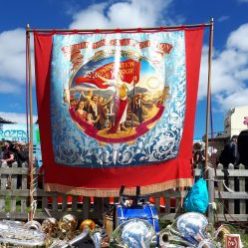This brief history of Crookhall was compiled in 2002 by our founder and former Secretary the late John ‘Beck’ Dixon who had a passion for local history. Thanks also go to Chris Tilney for providing some of the photographs included on this page.
In 1183 Crooke was mentioned in the Boldon Book as ‘yields two marks.’
Successive families owned Crooke over the centuries from the De la Leys through the Thorntons, Shaftoes and others until the Baker family bought Crook Hall in 1635. They looked after the land but not particularly the Hall until Consett Iron Company bought it in 1877. When the first Manor House was built no one knows but George Baker “built or remodelled” Crook Hall in 1716.
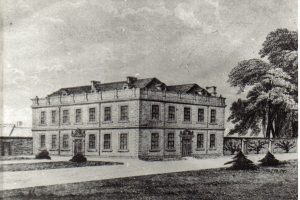
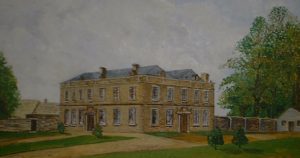
Sadly the Hall no longer exists the following photographs were taken when it was in ruins the Hall was situated adjacent to what is now the Farm at Crookhall
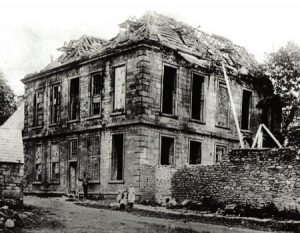
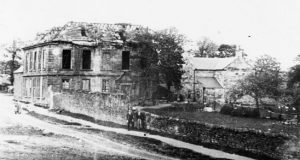
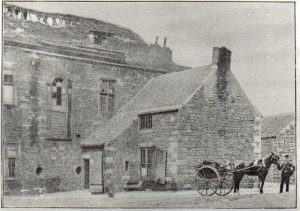
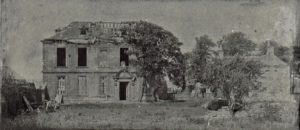
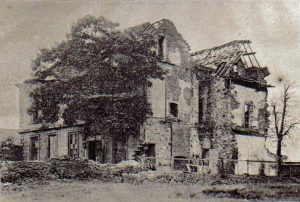
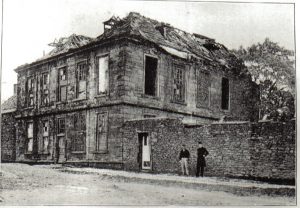
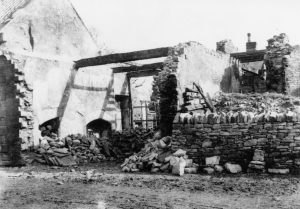
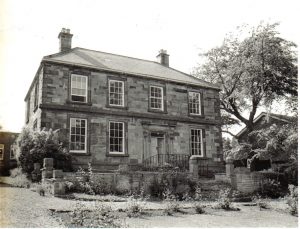
Coal mining started in 1834 when the Baker family had the fields of the district drilled. In 1839, the Stockerly House Pit was sunk. The next pit sunk was the West Ellimore Coal and Clay Pit on the site of the playing fields; next was the Delves Pit, renamed the Latterday Saint Pit or Saint Pit then reverting to Delves Pit. The final pit was sunk in 1921 and was called the Victory Pit, all coming under the “Crookhall Royalties” and officially called Crookhall Colliery. Drifts were opened up to serve all these pits; Bogle Hole, Witch Hole, Carr House, Humber Hill and Dunley Ford, Woodside and Esp Green.
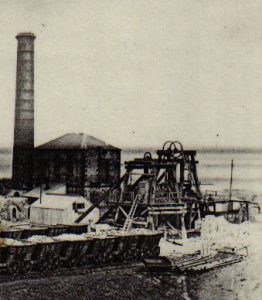
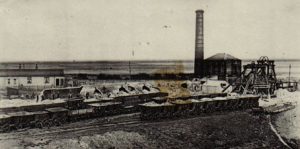
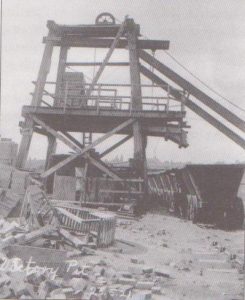
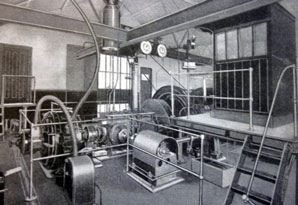
Coal mining officially ended in November, 1963 but Woodside Drift was kept open for many more years in private hands. The only reminder of the Victory Pit is now the old arch entrance which stood on Delves Lane, the land is currently being redeveloped for a new Lidl store but after representations from the Foundation, local Councillors and Durham Mining Museum and our MP one of the planning conditions is that the arch must be rebuilt on the new site to act as a memorial to the miners who worked in the area. The arch was rebuilt in October 2018 (photographs showing the rebuilding are included on our news page) and a display board explaining the history of the site which we designed will be placed in front of the arch.
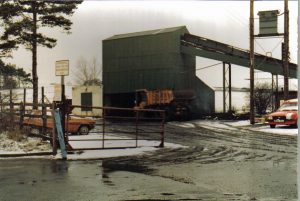
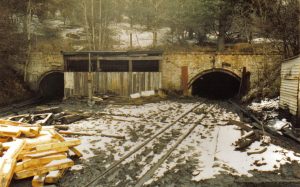
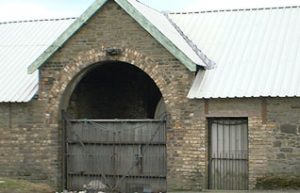
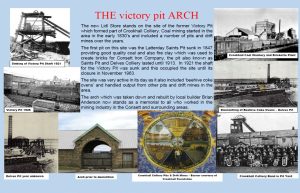
Crookhall Village Development
The village of Crookhall was first initiated by the building of two rows of one up, one down cottages in about the year 1844. They were built to house the workers of the recently erected furnaces of the new Derwent Iron Company, later to become the world famous Consett Iron Company. These cottages were named Red Row and Blue Row. These houses no longer survive the last ones being demolished around 1958/9.
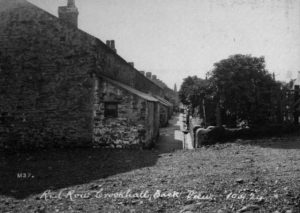
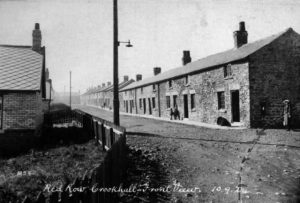
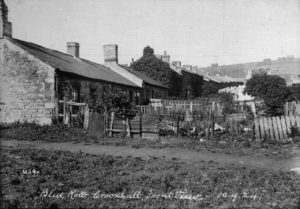
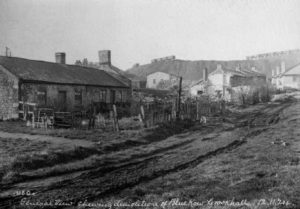
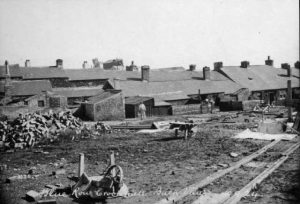
In 1921 new cottages were erected in Crookhall and Delves Lane, this being the beginning of Delves Lane as a village. Crookhall people moved out of the dilapidated old cottages and into 6 streets of new bungalows which still exist today (First – Sixth Streets).
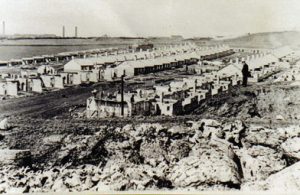
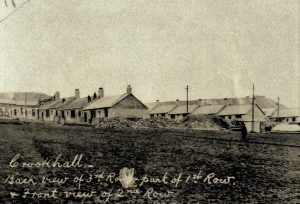
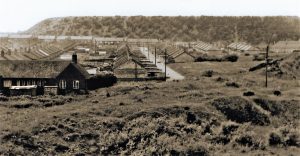
Main Street and the short row houses (North and South Streets) were also built about the same time to house the “company” employees, who worked at the Iron Foundry, which was built on the site of the furnaces after centralisation of the Blast Furnaces at the main site at Consett. When a new foundry was built at the Consett site, the old foundry at Crookhall was levelled and the site purchased by Thomas Swan and Co. Ltd, which has expanded over the years to become a leader in the field of specialist chemicals and remains a major employer in the area.
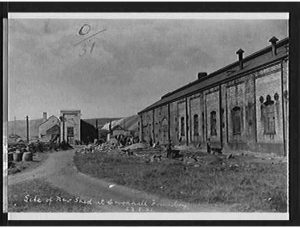
From 1921 the village took on a broader outlook; The Methodists built a new chapel, the Church of England built a Sunday school as a satellite of St. Ives at Leadgate. The Co-operative Society built a General Store and the Cade family moved from Red Row, where they sold goods from the house, to a purpose built shop at the top of South Street, which later doubled as the Post Office but is now just a house. A Fish and Chip shop served the community by the Howard family and was situated at the end of Main Street.
The colliery at Crookhall, the Victory Pit, also boasted one of the finest Brass Bands in the County, if not the Country. Founded in 1924 as the Victory Pit Crookhall Colliery Band, they led the championship tables in the North-East in the 1950s and 60s. Known as Crookhall Bradley Band in 1966/7. Following the colliery’s closure sponsorship came from Patchogue Plymouth, a fibres division of the American oil company Amoco, and the band became the Patchogue Plymouth Amoco Band. The parent company were impressed with the band to the extent it took over the sponsorship and the band became the Amoco Band in around 1976. However it did not last and the band folded around 1980.
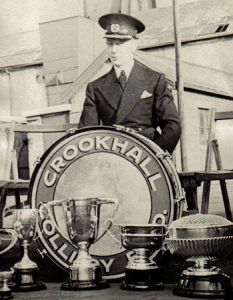
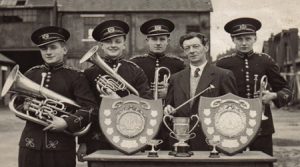
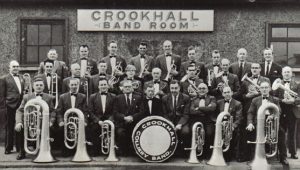
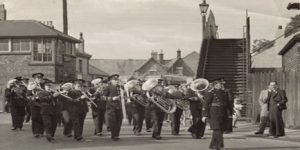
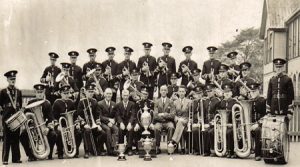
Sport in the early days would have consisted of Quoits, the miners favourite pastime, and the likes of whippet racing… etc . The other, indoor pastime was the playing of billiards and snooker in the Miners Institute, which, today houses the Crookhall Community Association. A large wooden hut at the bottom of fourth street served the village where they held Beetle Drives and Bingo. This also served as a venue for wedding receptions and Christenings, as well as hosting the Cricket Teams teas.
The first known organised sport was the Methodist Chapel Football teams in the 1920’s, quickly followed by the Crookhall Rovers and, later, the locally famous Crookhall Juniors. Cricket arrived in 1949 with the levelling of the land adjacent to the football field by volunteer s from the village with success coming in their very first season.
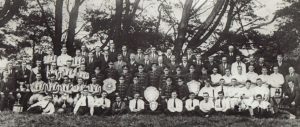
The former miners bungalows are still popular today as a place to live but the village is more of a commuter village being close to both Durham and Newcastle although many are still employed locally by Thomas Swan & Co. The Foundation with its Banner Group activities attempts to keep alive some of the history of the village as many of the places mentioned in this brief history no longer exist only the Miners Institute which is now Crookhall Community Centre, although bingo is still played every Friday night! The Miners Institute at Delves Lane is also still used as a Village Hall.
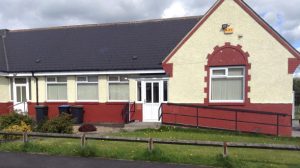
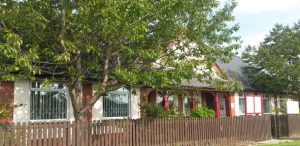
Crook Hall link to Ushaw College
In April 2018 Ushaw College held an exhibition on Douai College which include within it references to the historical link between the original Crook Hall and the College. In 1794 a number of catholic students were sent to Tudhoe where a former Douai student was running a school. Following this they stayed briefly at Pontop Hall near Stanley until they moved to Crook Hall where they remained for 14 years. Crook Hall was not seen as a permanent home and the land now forming Ushaw College was purchased with construction starting in 1804. On 19 July 1808 the firts students walked from Crook Hall to Ushaw providing a new base for the teachings and traditions of Douai College in the North East of England.
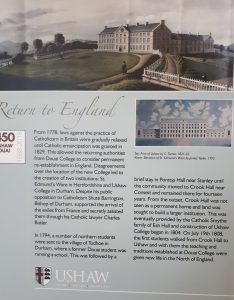
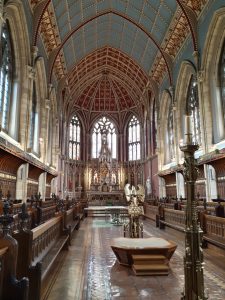
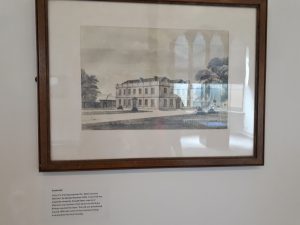
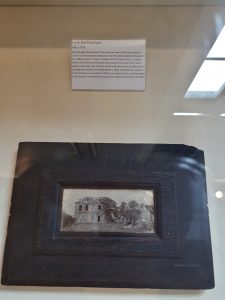
Consett Magazine Article – Crook Hall
Article by Brian Harrison that appeared in the Consett Magazine in April 2018
A Brief History of the Lords and Owners of Crook Hall, Consett History – Brian Harrison
If you would like to help Crookhall Foundation with its work please contact us
